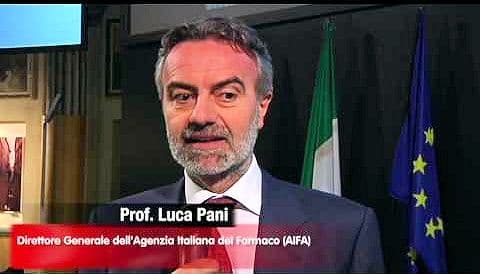Now AIFA threatens: as a regulatory agency we have reminded the doctors that if there are irregularities in the reports we will not be the ones to deal with them but someone else less understanding. The veiled reference is to Nas, the Guardia di Finanza and the Court of Auditors which could identify crime profiles, "if the reports increase on certain batches of equivalents and direct them to prescriptions for "branded" drugs".
Tuesday, 23 September 2014 – Doctor33
«I repeat, there has been too much increase in reports of adverse reactions on patients concomitantly with the prescription of equivalent drugs.» The director general of the Medicines Agency
Luca Pani è preoccupato. Nel 2014 le segnalazioni dei medici di famiglia sulle schede della Rete nazionale di farmacovigilanza hanno registrato un boom che l’Aifa non rende ancora noto, e l’impennata a fronte di reazioni non gravi ed attese appare anomala. Pani non dà numeri conferma il monito contenuto in un recente Press release:
Pani non precisa l’Asl dove è stato concluso l’accordo. Ma a lui arriva la replica di Silvestro Scotti numero due del sindacato Fimmg: «D’accordo, si può pensare anche alla malafede di qualche medico di famiglia. Ma ricordiamo che al mmg è sempre meno possibile bloccare la sostituzione del farmaco da lui prescritto da parte del farmacista. In regioni come la Sicilia e l’Emilia Romagna, dove al posto della ricetta si stampa il promemoria, i gestionali ormai bloccano la possibilità di segnalare che un paziente ha bisogno del farmaco “branded” perché va incontro a reazioni avverse. Quindi il medico ci pensa due volte prima di forzare il sistema, a meno che non sia necessario. Segnalo poi, per “equilibrio”, un problema generato in farmacia, lo “zapping” da generico a generico, già avanzato da Federanziani: il medico prescrive un equivalente ma a parità di costo il farmacista lo sostituisce mandando talora in confusione il paziente. Qualche anno fa chiesi ad Aifa di fornire i dati sull’incidenza dei farmaci generici “sostituti” in farmacista sull’intera spesa sostenuta dal Ssn per il generico, L’Aifa ha i flussi e Pani mi disse che li avrebbe forniti. Li aspettiamo».
Mauro Miserendino
Related news: Too many adverse reactions to generics. Aifa: report responsibly
